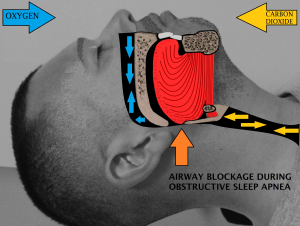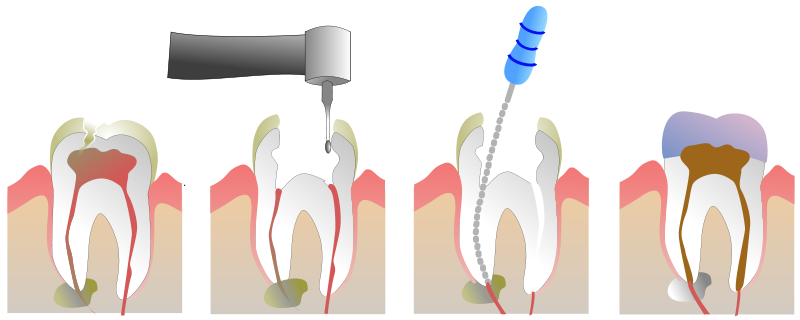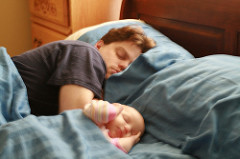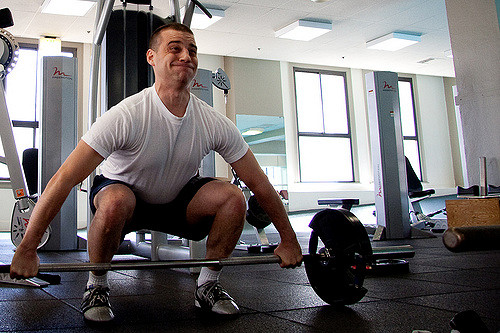Over 40% of adults snore. Light snoring is no more than an embarrassing habit, but loud disruptive snoring can drive your spouse out of your bedroom. Chronic, heavy, loud snoring may also signal a condition called Obstructive Sleep Apnea (OSA) which is often associated with hypertension, stroke and cardio-pulmonary problems. OSA affects more people than asthma but is often undiagnosed.

Sleep Apnea: Causes and Complications
Snoring usually occurs when your lower jaw and tongue drop against the back of your throat during sleep, constricting your airway. Your breathing intensifies, causing the soft tissue at the back of the throat to vibrate. Large tonsils, bulky neck tissue and excessive soft tissues can be contributing factors to this problem. In OSA, breathing can be totally stopped and repeatedly stopped for ten seconds or longer during sleep so that half of sleep time is oxygen deprived. For apnea sufferers, their hearts work much harder, they wake unrefreshed and sleepy causing them to fall asleep during the day, sometimes even behind the wheel. Sleep apnea can also cause other complications such as: high blood pressure or heart problems, fatigue, complications with medications, liver problems, and sleep-deprived partners. (Photo By Drcamachoent – Own work, CC BY-SA 4.0, wikimedia)
Sleep Apnea Diagnosis and Treatment
Special sleep tests and oral appliance therapy are available to help stop snoring and help with OSA. A custom designed oral appliance holds the mandible forward during sleep to prevent the tongue and soft tissue of the throat from collapsing into the airway. If you suspect you or your loved ones have OSA, or if you have been diagnosed with OSA and cannot wear a CPAP (Continuous Positive Airway Pressure) machine, please give us a call and let us help you (and your partner) get a good night’s sleep.
Take the Sleep Pop Quiz
You might also like: Symptoms of Sleep Apnea










